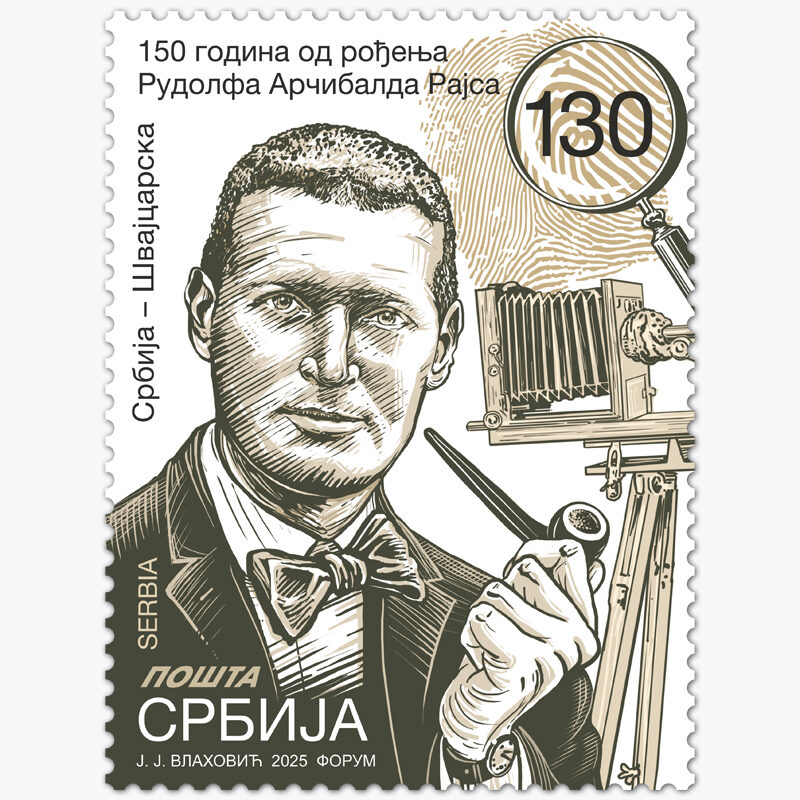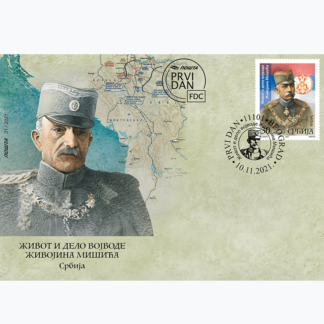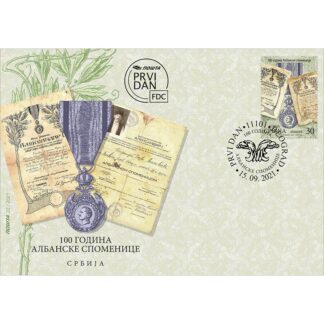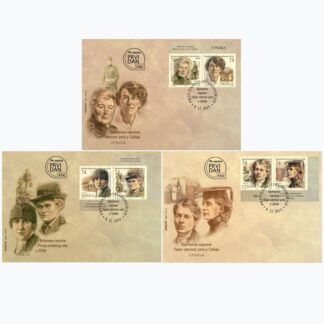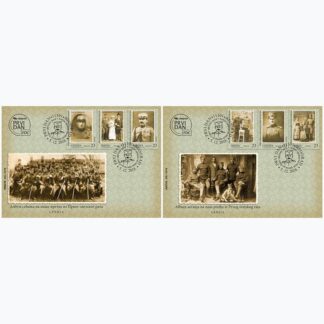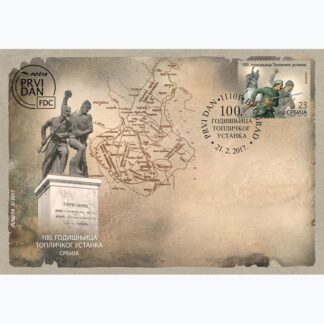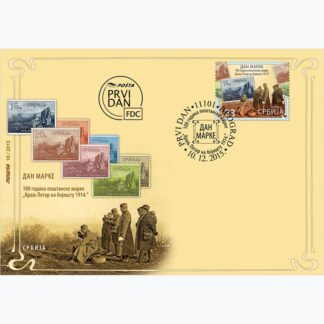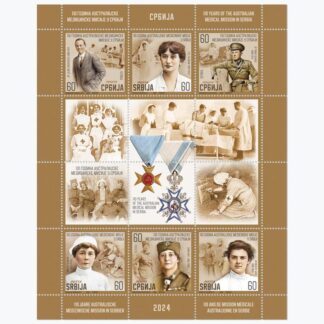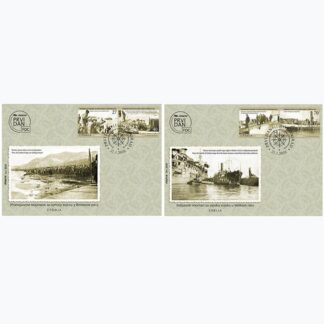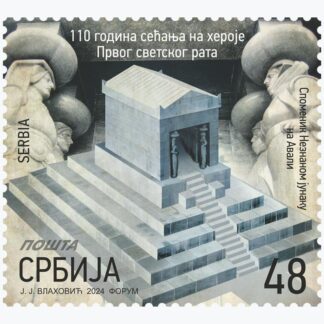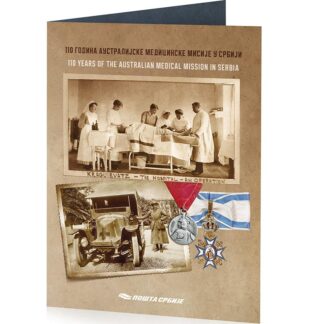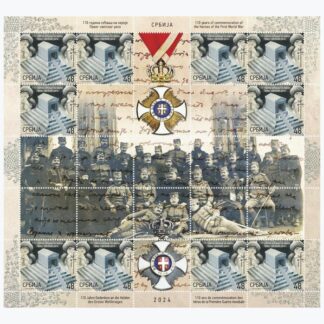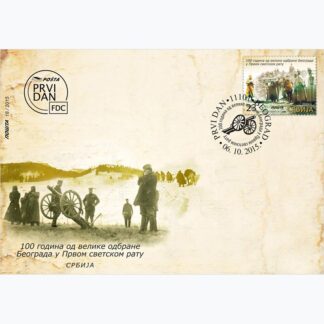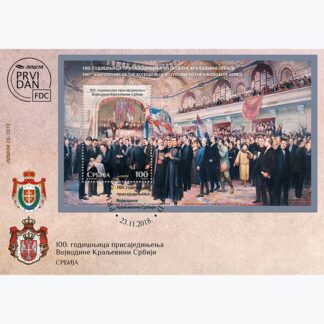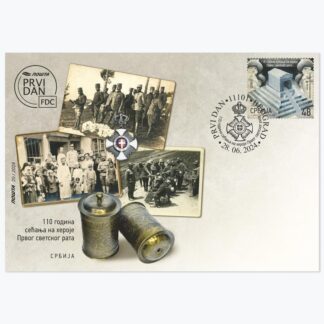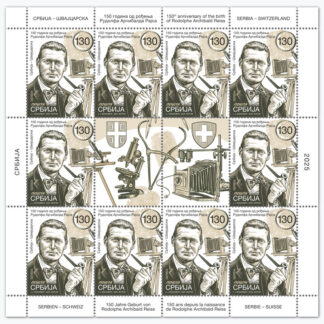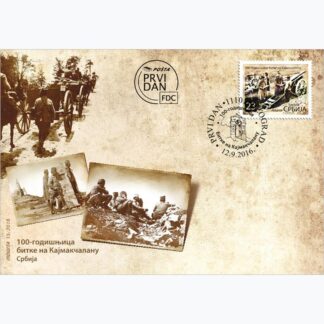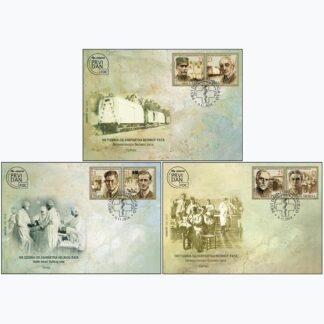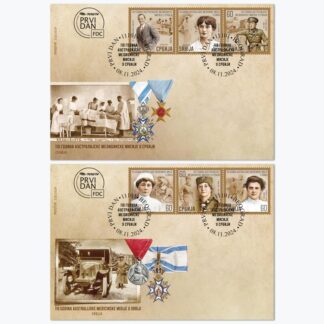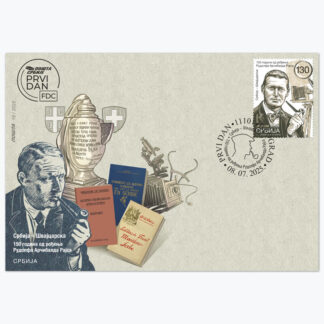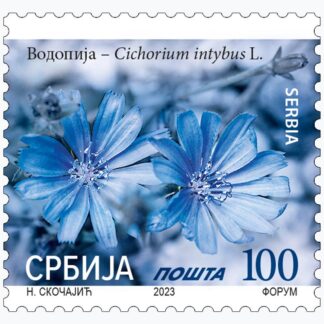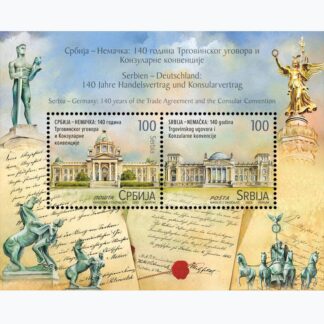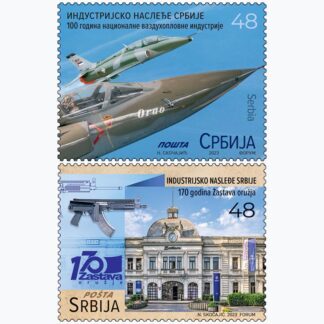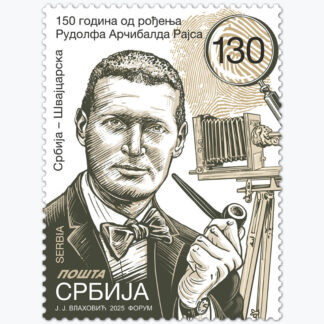Description
Rodolphe Archibald Reiss (Hechtsberg, Hausach, July 8, 1875 – Belgrade, August 8, 1929) was a Swiss forensic scientist, criminal expert, university professor, publicist, and a great friend of the Serbian people.
He received a doctorate in chemistry and became an assistant professor at the University of Lausanne, dealing with photography and forensics, and in 1902 he began teaching forensic medicine, becoming a full professor in 1906.
After the outbreak of World War I in 1914, Archibald Reiss came to Serbia, at the invitation of the Serbian government, to investigate the crimes of the Austro-Hungarian army against the civilian population. His newspaper reports on the suffering of Serbs issued during 1914 were published in Paris in 1915 in a separate book “Comment les Austro–Hongrois ont fait la guerre en Serbie”, and then in London, in 1916, in English (How Austria-Hungary Waged War in Serbia: Personal Investigations of a Neutral).
Reiss later went through the Albanian Golgotha, Corfu and the Salonika Front with the Serbian army, documenting the wartime suffering and the lives of Serbian soldiers, which he published after the war in the piece “Letters of a Criminologist on the Serbian Macedonian Front” and his war diary “What I have Seen and Lived in Great Days”.
He was a staunch supporter of the creation of the Yugoslav state and a member of the Yugoslav government delegation at the Paris Peace Conference in 1919. After the war, he settled in Serbia and received citizenship. Known for his dedication to truth, justice, and love for Serbia, he wrote about social problems, disappointed with the conditions in the new state. His most famous work, “Listen, Serbs!”, was published after his death, according to his order.
He died on August 8, 1929 in Belgrade. According to his express wish, his heart was buried in Kajmakčalan, next to the fallen Serbian soldiers. Honorary Captain of the Serbian Army Archibald Reiss, the recipient of the World War I medal, was awarded the Order of the White Eagle with swords and two medals for bravery. History remembers him as one of the most sincere friends of Serbia and a symbol of honesty, humanity and sacrifice.
Professional cooperation: Prof. Milan Radovanović, PhD, Embassy of Switzerland in Belgrade and University Library “Svetozar Marković” Belgrade
Artistic realization of the issue: MA Jakša Vlahović, academic graphic artist
